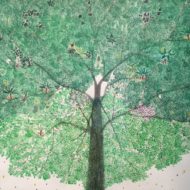Last week I gave a talk at the ‘Politics, Fake News and the Post-Truth Era’ symposium organised by the Institute for Policy Research at the University of Bath. I presented some of the work that myself and several other colleagues from the Public Data Lab, a network of researchers working to facilitate research, engagement and public debate around the future of the data society, have done on fake news this year.
I focused on two publications we produced this year:
A Field Guide to Fake News – a research report that uses digital sociology approaches to explore the production, circulation and responses to fake news online. This is done in the form of recipes which other journalists and researchers can follow and adapt to their own investigations. You can see here the outcomes of a collaboration we had with BuzzFeed News around one of the recipes to explore ad networks used by fake news sites.
Five Provocations about Fake News – a research article that draws on Science and Technology Studies (STS) to challenge some of the themes that underlie existing debates and research about fake news and proposes some provocations and analytical lenses to enrich the way we understand it.


